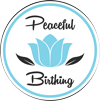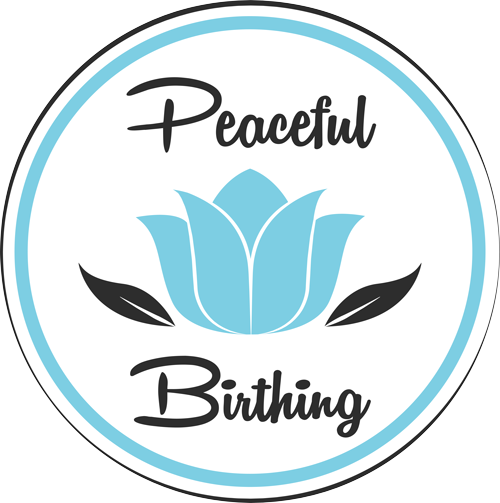“Let’s be real when discussing the realities of early motherhood. It’s beautiful, it’s challenging, with moments of joy and despair. Every mother and baby is unique. But one common thread is that it’s not meant to be done alone”.
Simone, Peaceful Birthing Founder x
Focus on Postpartum
Early motherhood, especially first time around, can feel like a bit of a rollercoaster. There will be moments you are on top of the world, you feel like you’re nailing this new phase of your life, and you’re completely besotted with your baby. There will also be moments where you feel like a failure; that you’ve been blind sighted by the reality of caring for a newborn; and that you want to hide. This could just be in one morning… so I’ve put together a few thoughts on for new mothers to discuss the following:
1. The physical reality
2. Preparation
3. Baby Brain
4. Your Village & Asking for Help
5. The Mother Instinct
6. Joy in the Everyday
7. Motherhood & Matrescence
The physical reality
Picture this. You’ve got a tiny human that basically requires your almost consistent attention. Highly likely you feel out of your depths. Periods of sleep deprivation. A steep learning curve for you both. It’d be great to begin this journey feeling at your peak health and slept up, right?
Probably not. Here’s the reality:
Pregnancy – your incredible body has grown a human. The reality is that in doing so you’ve sacrificed your own internal nutritional stores. Your baby literally sucks the life out of you – which is great, we want them to be strong– but it leaves us more depleted than before.
Birth – however your baby arrives, there is a physical toll. For vaginal birth, regardless of the length of labour, it’s likened to a marathon. Astonishing amounts of energy and mental effort required. And for those born via caesarean, there still may have been the physical toll of labour, and then recovery from major abdominal surgery on top of that.
Postpartum bleeding – regardless of how your baby is born, the wound from the placenta detaching from the uterus needs to heal. It’s common to bleed for up to 8 weeks. Heavy bleeding. If this wound was on the outside, I have no doubt we’d make more of an effort to support the new mother.
Our culture encourages new mothers to just soldier on. But when the light is shone on pregnancy and birth like this, surely, it should be blatantly obvious that nurturing the new mother in the early postpartum stage is priority not a nice to have?
Preparation
A joyous postpartum period is more likely with preparation.
Everyone will be different, but it can be helpful to begin with the expectation that the new mothers role is solely to rest, recover, breastfeed and fall in love with her baby. All of the domestic chores, mental load and career pressures are hung up for a short period, usually around 6 weeks.
- What is your intention in this phase of your life?
- How do you want to feel?
- How can you best nourish yourself and recover after birth?
- What are your breastfeeding and sleeping desires?
- How can you balance other commitments such as other children and financial requirements?
- Do you have someone in your life that you can be truly vulnerable with to help you navigate the emotional and spiritual transition?
Carve out some time to actually consider your postpartum period. Grab a pen and paper, perhaps a diffuser and relaxing tunes, and go for it.
All things Baby Brain
Did you know that Baby Brain is a real thing? A pregnant womans brain reduces in volume. It sounds scary; and can play out making it hard to find your keys, or know what you did yesterday, or know if you need milk. But simultaneously the cerebral cortex enlarges. A computer algorithm can tell with 100% accuracy whether a woman has been pregnant from an MRI scan. Fascinating!
In actual fact the brain is defragging all the information it no longer needs, to make room for the new superpowers:
- Subtle body language are read more rapidly. The purpose is to better respond to your baby, but your overall emotional intelligence is heightened.
- The neuroplasticity of the brain is increased to prime you for learning (better responding to your babies cues and forming new neural pathways for future subconscious action)
- Our brains respond to motherhood as an enrichment program to make her feel more satisfied and more adaptable to their environment.
- Increased tolerance to the monotony of early motherhood to be a happier mother
- Peaking oxytocin post birth to encourage you to fall in love with your baby.
Baby brain has a beautiful intention. We as superbly designed to birth and nurture our young. But in a world where we define happiness as what we’ve achieved and what we’ve got, this can get lost.
Your Village & Asking for Help
No doubt you’ve heard the term that ‘it takes a village’ to raise a child. This was the lived reality of our ancestors, but more often than not it’s not our lived reality.
Rather than living closely with a community, we live a family unit away from families with more bedrooms, tvs and devices than there are household members!
So the reality is that we need to ask for help. Arghh no way I hear you say!! Have you ever stopped to think about exactly why it feels so repulsive to ask for help?
Here are the most common reasons:
- Fear of rejection
- Fear of being a burden
- Fear of losing control
- Fear of appearing weak
- Belief that you shouldn’t have to ask for help
- Feeling you have no one to ask
Do any of these resonate with you?
If they do, I encourage you to evaluate if it’s actually true. Explore what comes up for you.
Apart from the fact that we are innately social creatures, we were not designed to mother alone.
Witnessing your thoughts and identifying any sabotaging or limiting beliefs, and challenge this with a new behaviour. You never know what joy your might find at the other end of a seemingly uncomfortable conversation.
The Mother Instinct
New mothers are often advised to trust their instincts. But most new mother will tell you it’s much easier said than done in the haze of sleep deprivation, this age of information overwhelm and the opinions of well-meaning family and friends.
It can make them feel like a failure; or that their not maternal enough, or worse still question their ability to be a mother.
None of this is true. You are the perfect mother for your child, just as you are. The new mothers brain in primed for learning; but this takes time.
Sarah McKay is a neuroscience academy teacher. She describes intuition as “A combination of your reservoir of lifetime experiences, learned associations, and memories which surface in your consciousness as feelings, and which then guide your judgements automatically. Intuitive decisions usually feel familiar, fast and effortless”.
So simply put, intuition is your subconsciousness rising to the surface. It takes time to build up experiences that hep you best respond to your child. It takes trial and error. Sometimes you’ll get it right – and sometimes you won’t. And that’s perfect. Your child is developing at an extraordinary rate in the early years, so it makes sense that how we repond to them will also need to shift.
Joy in the Every Day
‘Self care’ in early motherhood looks very different to pre baby. But that doesn’t mean you can pepper your day with moments of joy that don’t necessarily centre around your baby.
Oxtocin: The Love Hormone (great for breastfeeding mothers!)
- Playing with an animal or your baby
- Holding hands
- Hugging someone
- Giving a compliment
Dopamine: The Reward Chemical
- Completing A task (not an expectation of several tasks!)
- Eating food
- Celebrating little wins
Serotonin: The Mood Stabiliser
- Meditating
- Walk in nature
- Exercise
Endophin: The Pain Killer
- Watching/Listening to a comedy movie/podcast
- Essential oils
- Dark chocolate
- Exercising
Your baby may or may not be with you. How about a walk in nature while your baby naps, you guilt free listening to a podcast, then on arrival pull out a rug for a morning snack and play with your baby. Covers all bases!
Place a reminder list on your fridge of simple things that bring you joy everyday 😉
Motherhood & Matrescence
Motherhood is a wild ride. It’s a hormonal rollercoaster of sleep deprivation, learning the cues of your childs needs, setting new expectations on what’s achievable in a day, bouts of loneliness (especially in the dark of the night), the responsibility of keeping your child safe despite having no idea what you’ve doing, a process of transitioning from your old identity and life in order to embrace this next evolution, and a heart so full that you feel it’s going to explode with joy.
It’s normal to feel all these emotions in just one day…
So here is my offer to you…
Give yourself permission.
Permission to embrace the newborn phase.
To thrive, not just survive.
To slow down; give yourself the time to fall in love with your baby and learn to understand cues and subtleties of your newborn.
To focus on breastfeeding and bonding; it’s a full time job.
Permission to make mistakes, to fail sometimes. That’s how we learn, and how we often develop ‘mother instinct’.
Permission to ask. Forget your hang ups or self limiting beliefs.
Permission to accept help. If only for these precious first weeks. No cooking, cleaning, dishes, ironing, hosting. Embrace the oxytocin fuelled bliss potential that this phase present. Give yourself permission to set your parenting journey from a foundation of strength, support, connection and love. I’m incredibly passionate about serving mothers in their transition to motherhood, in the time coined ‘Matrescence’. It may be a term you are not familiar with, which envelopes a woman’s physical, emotional and spiritual journey beginning with motherhood.
I’d love to support you in a your parenting journey.
For more information, click on the link
Simone x


